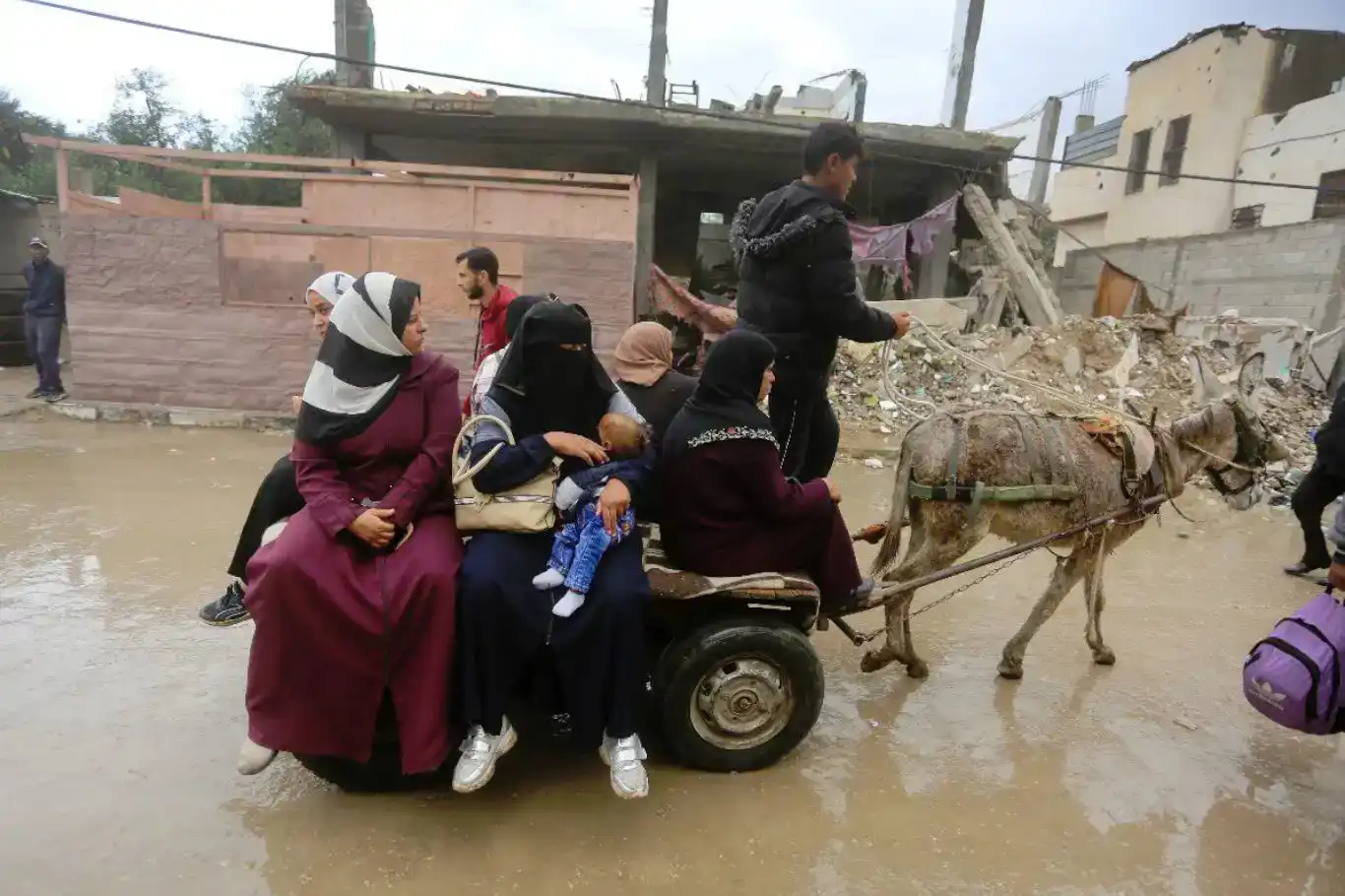UNFPA: Women in Gaza give birth amid rubble, hunger, and unsafe conditions


UNFPA Deputy Executive Director Andrew Sabeton warns that pregnant women in Gaza are delivering babies under catastrophic conditions as hospitals collapse, medicine runs out, and humanitarian aid remains blocked.
Andrew Sabeton, Deputy Executive Director of the United Nations Population Fund (UNFPA), said that one in four people in Gaza are suffering from severe hunger due to the ongoing Israeli blockade, adding that women are “giving birth amid endless rubble.”
Sabeton, who recently visited Palestine, described the “massive destruction in Gaza” as something that felt “like a scene from a black-and-white war film,” but noted that the reality was “far more painful.”
“What I saw there was not collateral damage,” he said, emphasizing that the “mountains of debris and devastation” he witnessed were unforgettable.
Sabeton stated that countless women in Gaza have lost their homes and belongings and can no longer access even basic hygiene materials during menstruation.
He said that one in four people in Gaza face hunger, including 11,500 pregnant women, warning that the situation poses “catastrophic risks” for both mothers and newborns.
According to Sabeton, about 70 percent of newborns are either premature or underweight, and one in three pregnancies is considered high-risk. He added that 94 percent of hospitals in Gaza have been damaged or destroyed.
Maternal deaths have sharply increased due to the lack of life-saving medicines, while many newborns are forced to share a single incubator because of fuel shortages and a lack of medical equipment.
“There is no such thing as a normal birth in Gaza right now,” he said, stressing that women are unable to reach hospitals and that ambulances and medical devices are nearly non-existent.
Many women, he added, are forced to give birth in random places, on roadsides, or among the ruins due to the absence of safe facilities and private spaces.
While Sabeton called the ceasefire a “small ray of hope,” he emphasized that a “complete end to military operations” is the only real solution. “Only after the bombardment stops can the long process of recovery begin,” he noted.
Sabeton said that UNFPA has managed to deliver limited aid to Gaza, but what has been permitted “is far from enough to meet the enormous needs.”
He noted that incubators, heart monitors, and hygiene kits are waiting at border crossings, stressing the urgent need for “fully opened crossings and a continuous, safe humanitarian corridor.”
More than 700,000 women and girls in Gaza, he added, are enduring “a monthly nightmare” due to the lack of clean water and sanitary pads, with some resorting to using torn fabric out of desperation.
UNFPA plans to restore women’s health and protection services by rebuilding maternity wards that can handle around 130 births per day, repairing and equipping hospitals, setting up new emergency facilities, expanding the network of midwives, and providing postnatal care materials.
Sabeton underlined the importance of reopening safe spaces for women in Gaza and highlighted the urgent need for psychosocial support to heal “psychological wounds that could last for generations.”(ILKHA)
LEGAL WARNING: All rights of the published news, photos and videos are reserved by İlke Haber Ajansı Basın Yayın San. Trade A.Ş. Under no circumstances can all or part of the news, photos and videos be used without a written contract or subscription.
A deadly explosion at a railway station in the northern Ukrainian city of Ovruch left four people dead, including the attacker, and injured twelve others on Friday.
Venezuelan President Nicolás Maduro has accused the United States of waging an ongoing campaign of psychological warfare and destabilization against his country, warning that the Bolivarian Republic will not surrender its sovereignty to imperial aggression.
Newly circulated footage has once again laid bare the brutal conditions endured by Palestinian prisoners in Israeli jails.